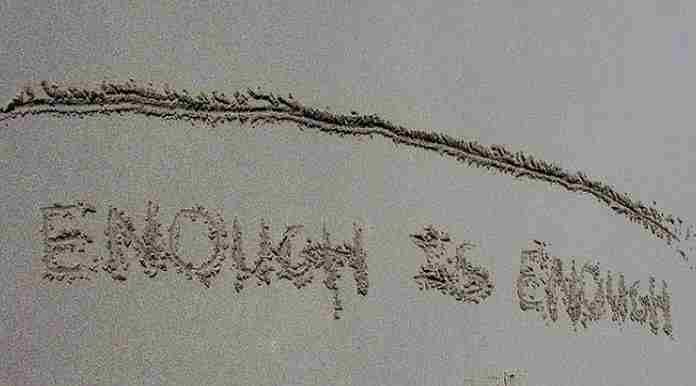 There wasn’t much surprise from the conference-call meeting of the World Ani-Doping Agency’s Executive Committee on Tuesday (22nd) as it confirmed the continuation of Russia’s status as a “compliant” member of the anti-doping community … for now.
There wasn’t much surprise from the conference-call meeting of the World Ani-Doping Agency’s Executive Committee on Tuesday (22nd) as it confirmed the continuation of Russia’s status as a “compliant” member of the anti-doping community … for now.
The collective anger of those who want Russia re-suspended for its state-sponsored doping program from 2011-15 has been paused because WADA – and those watching it closely – don’t have enough information to make any kind of judgment right now.
And that’s what WADA’s statement said:
“[A]n expert team (comprised of an independent forensic IT expert supported by two WADA staff) was given full access to the Moscow Laboratory and was able to make forensic images of all of the data from the laboratory instruments, from the back-up hard drives on the server, and from the separate LIMS database. The team also took forensic images of further data, including metadata, that will assist in the next phase of the process, during which WADA’s Intelligence and Investigations (I&I) Department, in cooperation with independent data forensic experts, will seek to confirm the authenticity of the data. This second phase may take two to three months.”
This is not what was originally expected, when the 31 December 2018 deadline was agreed on last September, but with the WADA data-retrieval team only finishing its work in Moscow a week ago, there is no way to know whether the data obtained is authentic, corrupted, changed or some mix of the three.
So everyone has to wait.
But there were some important developments as well and these should not go unnoticed, or under-appreciated. The WADA statement noted:
● “Upon confirmation of authenticity, WADA will use the data to determine which athletes have cases to answer for breach of the anti-doping rules and will pass those files on to the relevant International Sports Federations (IFs) to bring the cases forward, while the Agency will keep its independent right to appeal to the Court of Arbitration for Sport any IF decision not to take a case forward.”
In other words, if a federation doesn’t make an obvious case against an athlete, WADA will do it itself. WADA President Craig Reedie (GBR) confirmed that “Above all, we want to ensure that those who cheated are held to account. That is what the September ExCo decision was all about, and I hope athletes and others see that we are making good progress in that regard.”
Two federations which have already indicated great interest in the data affecting their sports are the IAAF for track & field and the IBU for biathlon. And weightlifting’s continued place on the Olympic program will be at stake if it doesn’t follow through.
● There was a clear line drawn in the proverbial sand concerning the quality of the data obtained at the Moscow Lab. It had better be authentic, or else:
“It should be noted that, as it seeks to authenticate the data, WADA’s I&I Department will submit progress reports every two weeks to the CRC. If, at any point, it is reported that the data have been tampered with, the CRC will convene without delay to review the facts.
“[Compliance Review Committee] Chair Jonathan Taylor [GBR] said: ‘If that review were to confirm tampering, the CRC would consider that to be extremely serious non-compliance and can be expected to recommend that WADA pursues the most stringent sanctions set out in the ISCCS.’ This was noted to the ExCo members for their information only but no decision was required at this time.”
This is crucial and while a common-sense comment, it also shows that the Russian Anti-Doping Agency (RUSADA) is still under scrutiny. The Associated Press reported that if data tampering was found that the Compliance Review Committee “would ‘very likely’ recommend that ‘no Russian officials, athletes or athlete support personnel will be permitted to participate in the 2020 Olympic or Paralympic Games’ if that happens” and that “Russia may not be granted any right to host any world championships in any sport for a specified period.”
● The WADA “line in the sand” also ties in with new comments made by Canadian law professor Richard McLaren, whose 2016 reports documented in detail many of the abuses by Russia in its wide-ranging doping schemes.
He told the German ARD network last Friday that while “It’s pretty much anyone’s guess as to what” the number of new cases the Moscow Lab data would reveal, “my thinking would be in the 300-600 possible range.”
McLaren also noted that “It’s puzzling to go back and think, what went on in December that they weren’t prepared to provide information and some ten days later in January, they are.
“I think what was going on there was nothing to do with WADA, but it was a power struggle within Russia. That got resolved over the Christmas period and now they are preparing to provide the information and are in the process of doing so.”
This sets an expectation that there will be many new cases of doping to be investigated, which will further obligate the Russians to provide access to the stored samples at the Moscow Lab for further re-testing.
● WADA’s statement on Tuesday underscored this:
“Similarly, if during the third phase (determining which athletes have a case to answer), the Russian authorities do not comply with requests for re-analysis of any of the samples stored at the Moscow Laboratory, the [Compliance Review Committee] will follow the same process and come back to the ExCo with an appropriate recommendation.”
Let’s remember that any re- testing of the stored samples will take place at a lab outside of Russia.
WADA has been widely criticized for not continuing to classify Russia as non-compliant until it meets all of the steps required for reinstatement, of which the data retrieval and re-testing are key elements. U.S. Anti-Doping Agency chief Travis Tygart issued a statement that began with “The decision to keep Russia compliant despite them missing the deadline and before any of the data has been verified as accurate was unfortunately expected. The decision is what it is; obviously change is needed for a global system that holds athletes strictly accountable but allows states to corrupt the Olympic Games and perpetuate massive fraud on athletes and the public.”
But what WADA has done – to its credit – is provide something of a step-by-step program that allows the Olympic Movement to follow along with the progress (or lack thereof) of the data validation and then the request for some of the 9,000 stored samples from the Moscow Lab.
And there is further pressure on Russia from the IAAF, which continues to maintain its suspension of the Russian Athletics Federation. The IAAF program to allow only “Authorized Neutral Athletes” from Russia to compete internationally has been tightened and every Russian athlete desiring such a designation has had to re-apply for the 2019 season.
The IAAF announced Monday that 42 athletes have been approved for 2019 thus far, although a reported 133 applications have been submitted. It was noted that all 42 of these athletes had been approved for competition in 2018, so no new athletes have been accepted as yet.
There were also two other positive developments in Russia. One was WADA’s confirmation that the compliance audit of RUSADA on 11-12 December was “very positive,” indicating that the reformed RUSADA may be on the way to dependable performance. Second was the announcement by Russian Bobsled Federation chief Alexander Zubkov – disqualified from the 2014 Sochi Games as a result of a lengthy investigative process and subsequent Court of Arbitration for Sport appeals – that he will step down during his suspension by the International Bobsleigh & Skeleton Federation. Zubkov told the Associated Press that Elena Anekina will serve as the federation’s acting president.
Slowly – but not surely – the momentum seems to be building toward a completion of the long process of discovering the full athletic impact of the Russian doping scandal and reformatting RUSADA into a working member of the global anti-doping community.
These are good developments, even if very slow in coming. Here’s hoping WADA will share more information – rather than less – as the data authentication and then the re-testing process is completed.
Rich Perelman
Editor


























